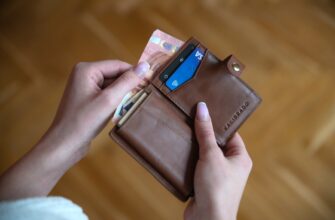With cryptocurrency values soaring, securing your digital assets has never been more critical. The question “Is it safe to store crypto wallet securely?” weighs heavily on every investor’s mind. The answer is yes—but only if you implement ironclad security protocols. This guide reveals professional strategies to shield your crypto from hackers, scams, and human error while maximizing accessibility.
## What Determines Crypto Wallet Safety?
Wallet security hinges on two core elements: **private key management** and **storage methodology**. Your private keys—the cryptographic passwords controlling your assets—must remain inaccessible to others. Meanwhile, your storage approach dictates vulnerability to online threats. Consider these non-negotiable safety pillars:
– **Encryption strength**: AES-256 or higher
– **Access control**: Multi-factor authentication (MFA)
– **Recovery protocols**: Seed phrase redundancy
– **Threat monitoring**: Real-time breach alerts
## Wallet Types Ranked by Security Level
Not all wallets offer equal protection. Here’s a safety comparison:
1. **Hardware Wallets (Cold Storage)**
– Examples: Ledger, Trezor
– Safety: ★★★★★
– Offline private keys, immune to remote hacking
– Physical confirmation for transactions
2. **Paper Wallets**
– Safety: ★★★★☆
– Printed QR codes/keys with zero digital footprint
– Vulnerable to physical damage/theft
3. **Mobile/Desktop Wallets (Hot Wallets)**
– Examples: Exodus, Trust Wallet
– Safety: ★★☆☆☆
– Convenient for frequent transactions
– High risk if device is compromised
4. **Exchange Wallets**
– Safety: ★☆☆☆☆
– Custodial control (you don’t own keys)
– Prime targets for exchange hacks
## 7 Unbreakable Crypto Storage Rules
Follow this checklist to eliminate security gaps:
– **Use hardware wallets** for long-term “cold storage” of bulk assets
– **Enable biometric authentication** on all device-based wallets
– **Store seed phrases offline**: Engrave on metal plates in fireproof safes
– **Never screenshot keys/phrases** – digital copies are hacker bait
– **Verify wallet addresses** manually before every transaction
– **Update software immediately** to patch vulnerabilities
– **Divide large holdings** across multiple wallets (diversified storage)
## Top 5 Crypto Security Threats to Neutralize
Awareness is your first defense against these prevalent dangers:
– **Phishing Scams**: Fake wallet apps/sites stealing login data
– **Supply Chain Attacks**: Compromised hardware during shipping
– **SIM Swapping**: Hijacked phone numbers bypassing 2FA
– **Malware**: Keyloggers capturing keystrokes on infected devices
– **Physical Theft**: Unsecured hardware wallets or written phrases
## Emergency Protocol: Recovering a Compromised Wallet
If you suspect a breach:
1. Immediately transfer funds to a new, secure wallet
2. Revoke connected dApp permissions
3. Wipe all data from compromised devices
4. Restore assets using your offline seed phrase (never enter it online)
5. Report theft to authorities and blockchain forensic firms like Chainalysis
## Frequently Asked Questions
**Q: Can crypto wallets be 100% hack-proof?**
A: No system is infallible, but hardware wallets with air-gapped signing provide near-perfect security when combined with disciplined key management.
**Q: Is storing crypto on Coinbase or Binance safe?**
A: While reputable exchanges invest in security, they remain high-risk targets. Use only for active trading—never long-term storage.
**Q: How often should I update wallet security?**
A: Conduct quarterly audits: rotate passwords, check device integrity, and verify backup accessibility. Update software within 24 hours of patches.
**Q: Are biometric logins safer than passwords?**
A: Yes—fingerprint/face ID adds hardware-level protection impossible to replicate remotely, unlike crackable passwords.
**Q: What’s the safest way to back up seed phrases?**
A: Use cryptosteel capsules or titanium plates stored in bank safety deposit boxes. Avoid paper/cloud backups.
Mastering these protocols transforms “Is it safe to store crypto wallet securely?” from uncertainty to confidence. Remember: In blockchain, security isn’t a feature—it’s a discipline. Implement these measures rigorously, and your digital wealth will remain impervious to evolving threats.








